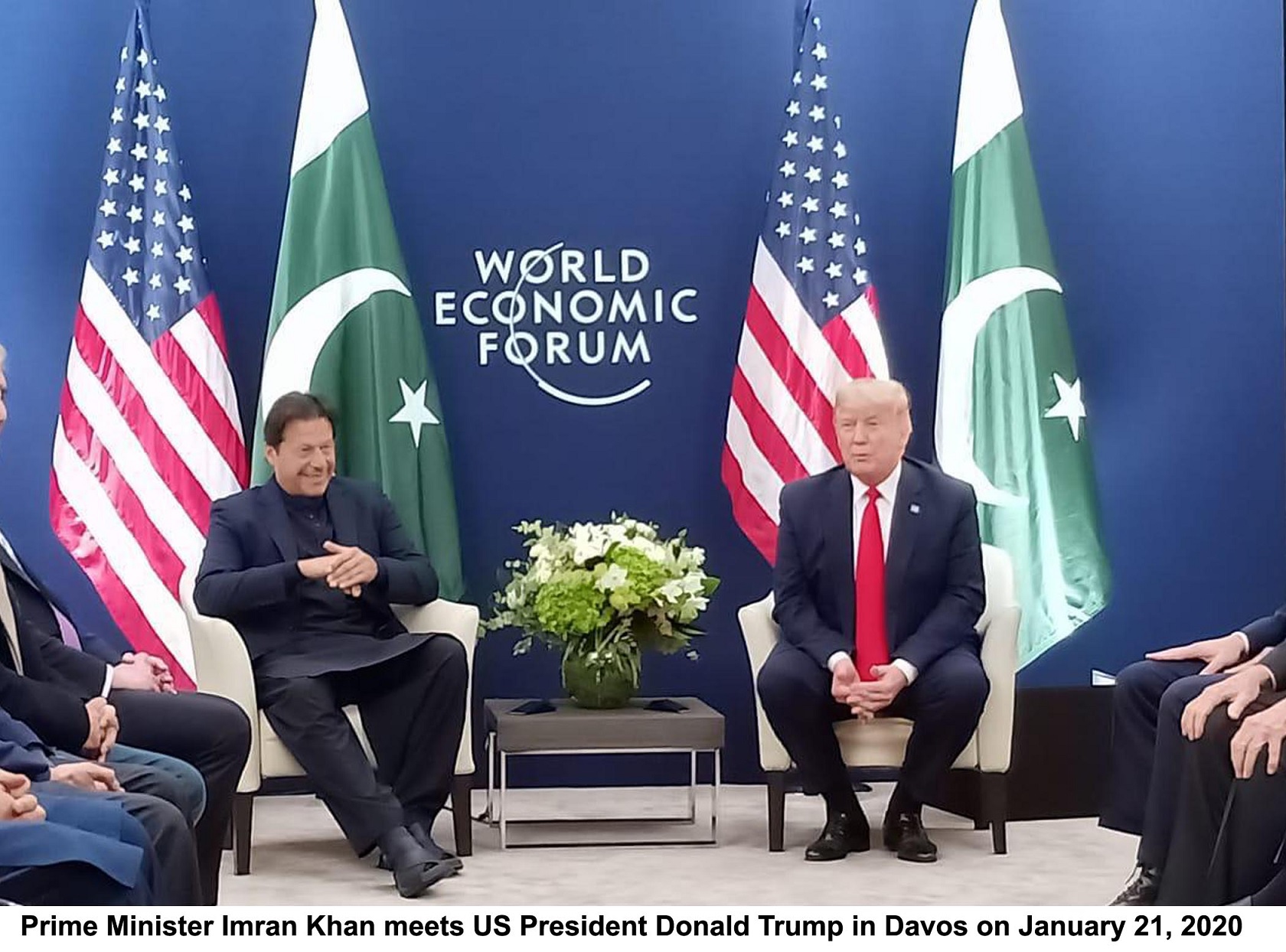
Pakistan options on Kashmir limited
US Congress think tank, Congressional Research Service, (CRS), has spoiled the party for Prime Minister Imran Khan releasing its latest ‘Kashmir report’ that speaks of ‘limited options’ for Pakistan on Kashmir theatre just on the very day President Trump appeared to offer him ‘a bail out’ though in a quid pro quo arrangement.
The Trump offer in essence amounts to a willingness to take up with Indian premier the Kashmir issue provided there are some visible Pak backed moves for truce with the Taliban. Pakistan has a vested interest in
Afghan peace but is unprepared to nudge the Taliban unless there is a compelling reason to do so.
President Trump has provided the bait when he met the Pakistani leader on the sidelines of Economic Summit at Davos in Swiss Alps Mountains.
This is not the first time though for the American President to appear eager to mediate between India and Pakistan. Like in the past, now also, his eagerness offers no material comfort to Imran Khan since India has not rolled back its opposition to such third party intervention.
Adding discomfiture to him is the blunt home truth the CRS report has delivered. It also termed as potentially unwise strategic shift President Trump’s apparent bonhomie with Pakistan’s prime minister and offer to mediate on Kashmir in July.
It is the second CRS report on Kashmir in less than six months. Its message: Islamabad must rely primarily on diplomacy, and not on sabre-rattling. Another equally blunt message is that Pakistan has “little credibility” on the issue given its long history of covertly supporting militant groups in J&K.
President Trump’s apparent bonhomie with Pakistan’s prime minister and offer to mediate on Kashmir in July was taken by some as a new and potentially unwise strategic shift,” it said.
Post August 5 scrapping of Art 370 by India, Pakistan “appeared diplomatically isolated”, with Turkey being the only country to offer solid and explicit support for Islamabad’s position, the CRS report released on January 13 said.
“Many analysts view Islamabad as having little credibility on Kashmir, given its long history of covertly supporting militant groups there. Pakistan’s leadership has limited options to respond to India’s actions, and renewed Pakistani support for Kashmiri militancy likely would be costly internationally,” the 25-page report said.
And bluntly stated: “Pakistan’s ability to alter the status quo through military action has been reduced in recent years, meaning that Islamabad likely must rely primarily on diplomacy.”
There is still a flicker of hope for Pakistan though and it depends on India bungling its act. “Given also that Pakistan and its primary ally, China, enjoy limited international credibility on human rights issues, Islamabad may stand by and hope that self-inflicted damage caused by New Delhi’s own policies in Kashmir and, more recently, on citizenship laws, will harm India’s reputation and perhaps undercut its recent diplomatic gains with Arab states such as Saudi Arabia and the UAE.”
The United States seeks to balance pursuit of a broad US-India partnership while upholding human rights protections, as well as maintaining cooperative relations with Pakistan. But with key diplomatic posts vacant, the US government’s capacity to address South Asian instability is thin, according to the report. The US President’s July offer to “mediate” on Kashmir may have contributed to the timing of New Delhi’s moves, it said.
—- By Poreg team
-
CHINA DIGEST
-
 ChinaChina Digest
China’s PMI falls for 3rd month highlighting challenges world’s second biggest economy faces
ChinaChina Digest
China’s PMI falls for 3rd month highlighting challenges world’s second biggest economy faces
-
 ChinaChina Digest
Xi urges Chinese envoys to create ‘diplomatic iron army’
ChinaChina Digest
Xi urges Chinese envoys to create ‘diplomatic iron army’
-
 ChinaChina Digest
What China’s new defense minister tells us about Xi’s military purge
ChinaChina Digest
What China’s new defense minister tells us about Xi’s military purge
-
 ChinaChina Digest
China removes nine PLA generals from top legislature in sign of wider purge
ChinaChina Digest
China removes nine PLA generals from top legislature in sign of wider purge
-
-
SOUTH ASIAN DIGEST
-
 South Asian Digest
Kataragama Kapuwa’s arrest sparks debate of divine offerings in Sri Lanka
South Asian Digest
Kataragama Kapuwa’s arrest sparks debate of divine offerings in Sri Lanka
-
 South Asian Digest
Nepal: Prime Minister Dahal reassures chief ministers on police adjustment, civil service law
South Asian Digest
Nepal: Prime Minister Dahal reassures chief ministers on police adjustment, civil service law
-
 South Asian Digest
Akhund’s visit to Islamabad may ease tensions on TTP issue
South Asian Digest
Akhund’s visit to Islamabad may ease tensions on TTP issue
-
 South Asian Digest
Pakistan: PTI top tier jolted by rejections ahead of polls
South Asian Digest
Pakistan: PTI top tier jolted by rejections ahead of polls
-






Comments